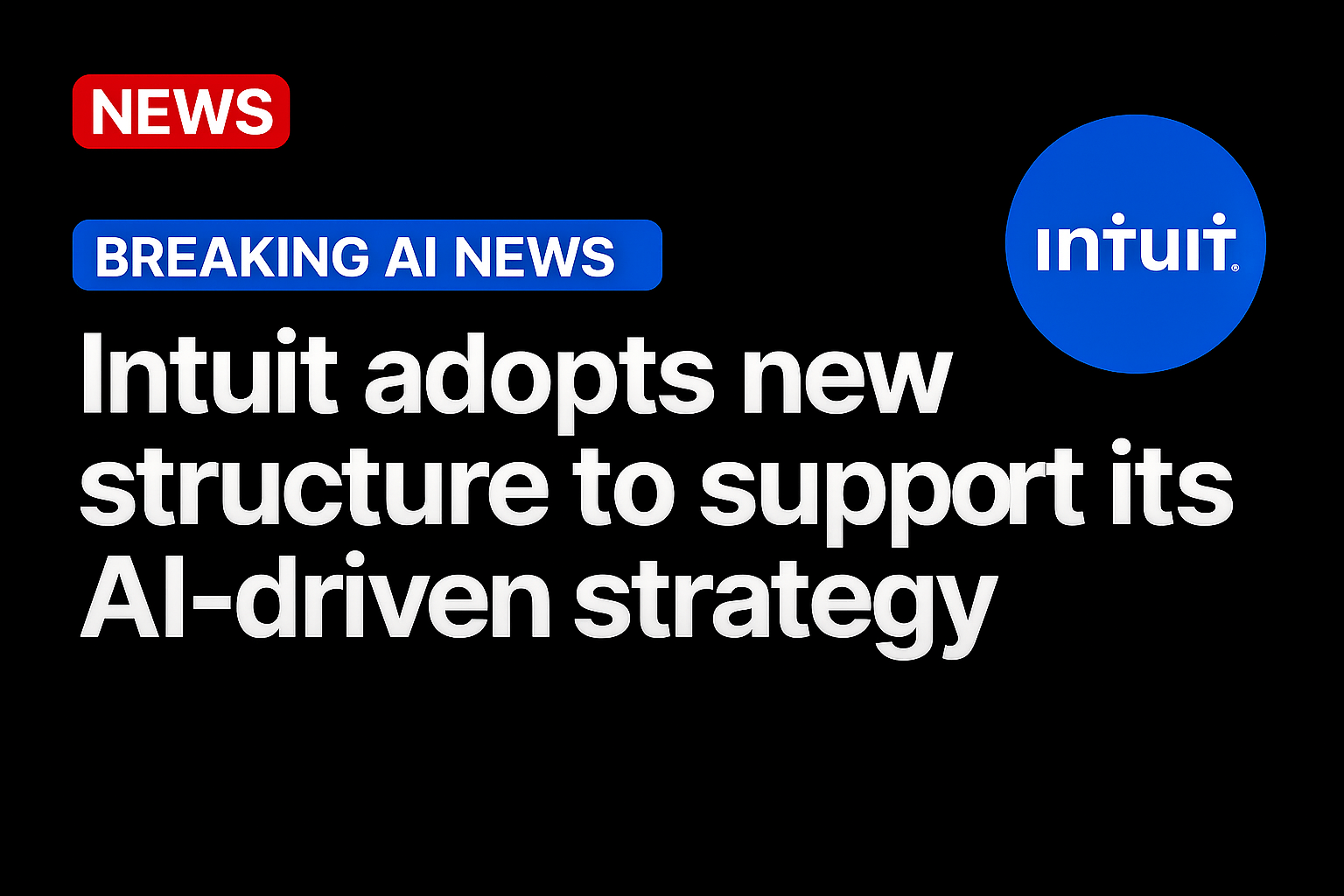The financial software world is undergoing a transition to more integrated, artificial intelligence-enabled platforms.
Intuit, the owner of Quickbooks, TurboTax, CreditKarma, Mailchimp, and other financial, accounting, and tax preparation software and services for consumers, small businesses and accountants, sits at the center of this transition.
Or rather, its products do. And on Thursday’s (Nov. 20) first quarter 2026 earnings call, Intuit’s executive commentary reflected a company that is advancing a deliberate transformation from software to platform, from product to service, from transaction to experience.
“We delivered an exceptional first quarter as we continue to execute on our AI-driven expert platform strategy,” said Sasan Goodarzi, Intuit’s chief executive officer. “We launched significant done-for-you innovations across our platform that are helping businesses.”
“Intuit is creating a system of intelligence, leveraging data, data services, AI, and human intelligence to fuel the success of consumers, small and mid-market businesses, and accountants,” Goodarzi added.
The company that once rode the annual cycle of do-it-yourself tax filings is now positioning itself as an essential operating system for small businesses and consumers navigating financial complexity.
Reshaping Intuit’s Business Model
For the most recent quarter, Intuit reported revenue of $3.9 billion, an 18% increase year over year. Intuit’s flagship small business accounting product, QuickBooks Online, posted 25% growth, driven by higher effective pricing, customer growth and favorable product-mix shifts.
But one of the most consequential developments, outside of its financials, was the structural reclassification of Intuit’s Consumer segment. As of Aug. 1, TurboTax, Credit Karma, and ProTax have been consolidated into a single Consumer business. Historically, Credit Karma Money was housed under Credit Karma; now it sits within TurboTax.
These moves may prove to be more than accounting footnotes. They may serve instead as key to understanding how Intuit is architecting its business going forward. The reorganization reflects a strategic bet: that consumers will expect a unified, AI-driven financial platform capable of managing taxes, credit, personal finances and advisory guidance in more cohesive ways.
Still, Global Business Solutions (GBS), which includes QuickBooks Online Accounting, Online Services, and the Desktop ecosystem, continues to be Intuit’s financial engine. The segment posted $2.99 billion in revenue, up 18% year over year, extending a multiyear pattern of double-digit growth and underscoring an ecosystem that has successfully migrated from primarily accounting software to a broader suite of integrated services.
And while Intuit’s quarter beat expectations, the company’s guidance for the next quarter set a slightly more cautious tone, while its full-year guidance of 12-13% revenue growth reflects a moderation from the growth seen in Q1.
Embracing AI
Intuit’s platform ambitions depend heavily on AI, data analytics and integrative experience. The challenge will lie in executing at scale: The cleaner your data, the smarter the AI; but the messy reality of heterogeneous small business finances means there could be a substantial execution hurdle.
Ultimately, the value proposition of Intuit shifting from software to expert-assisted or AI-augmented services may mean success depends on customer adoption, workflow embedding, partnering ecosystems and monetization beyond traditional subscriptions.
The company must also show that the investment in AI, data infrastructure, human-expert workflow integration and platform transition delivers not just incremental growth, but a structural advantage — i.e., higher switching cost, stronger customer retention and higher monetization per customer over time.
Competition for AI-powered SMB services is also only growing.
“AI is going to be a big innovation tool for companies like us,” René Lacerte, CEO and founder of BILL, told PYMNTS during a recent discussion for the 2025 “What’s Next in Payments” series, “November: The Year of the CEO,” highlighting AI not as a threat but as an inflection point.
“It’s going to be great for SMBs,” said Lacerte. “A year or two from now, there could be a touchless experience for an SMB, so they don’t have to think about financial operations, and workflows can manage themselves. That’s ultimately what we all want.”
Source: https://www.pymnts.com/

